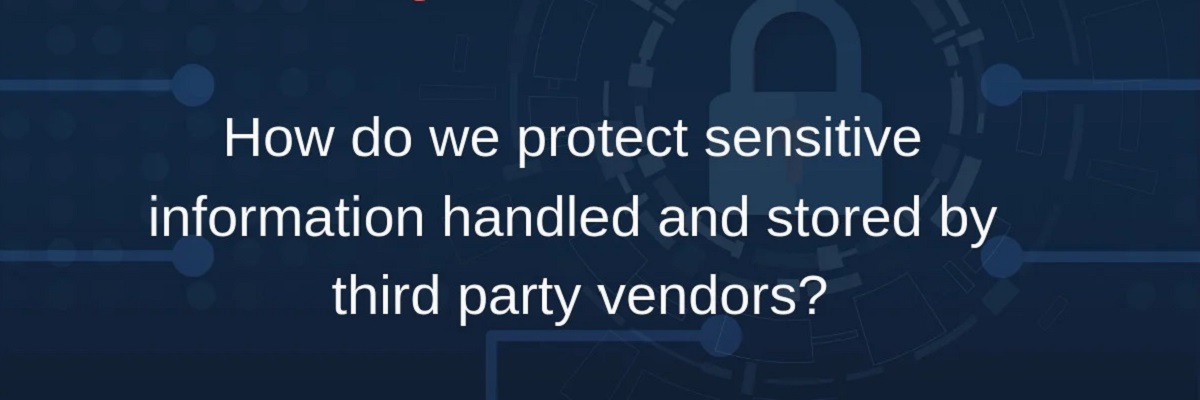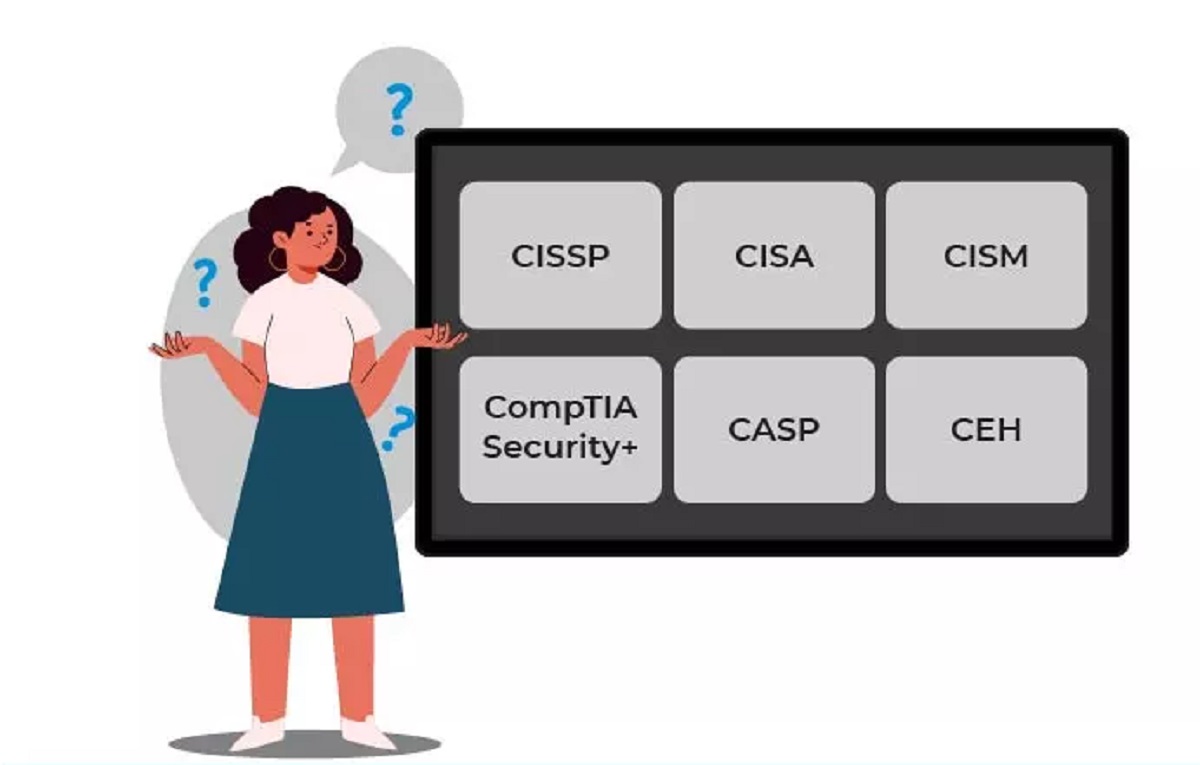Introduction
Welcome to the fascinating world of cybersecurity. In an increasingly digital age, where information is readily accessible and transactions are conducted online, the need for robust and effective cybersecurity measures has never been more crucial. As technology advances and cyber threats become more sophisticated, the importance of protecting sensitive data and information has become paramount for individuals, organizations, and governments alike.
A strong research question in the field of cybersecurity serves as a foundation for conducting thorough investigations, tackling complex issues, and contributing to the development of effective strategies to safeguard against cyber attacks. It is through these research questions that experts and researchers can explore various dimensions of cybersecurity, understand emerging threats, and propose innovative solutions.
When crafting a strong research question, it is essential to ensure that it is open-ended, allowing for exploration, analysis, and discussion. An open-ended research question encourages critical thinking, enables the exploration of multiple perspectives, and allows for the identification of gaps in knowledge within the field of cybersecurity.
In this article, we will delve into the realm of cybersecurity research questions, exploring their significance and potential areas of investigation. By examining a range of open-ended research questions, we aim to shed light on the multifaceted nature of cybersecurity and highlight its relevance in our increasingly connected world.
What is a strong research question?
A strong research question serves as the guiding force for any research endeavor. It is a concise and focused query that seeks to address a specific problem or examine a particular phenomenon within the realm of cybersecurity. A well-crafted research question is essential as it sets the direction of the research, determines the methodology to be employed, and aids in the generation of meaningful insights.
There are several key characteristics that define a strong research question:
- Relevance: A strong research question should be relevant to the field of cybersecurity and address significant issues or gaps in knowledge.
- Specificity: A research question should be specific and well-defined. It should not be too broad or too narrow, allowing for focused analysis and investigation.
- Clarity: A well-crafted research question should be clear and easy to understand. It should clearly state the purpose of the research and the expected outcomes.
- Feasibility: A strong research question should be feasible, considering the available resources, time constraints, and ethical considerations.
- Originality: While building upon existing knowledge is essential, a strong research question should also have an element of novelty or bring a unique perspective to the field of cybersecurity.
By adhering to these characteristics, researchers can ensure that their research question is strong and capable of generating valuable insights in the field of cybersecurity. It is important to note that a strong research question can evolve and be refined as the research progresses. Flexibility and adaptability are crucial as new information and insights emerge throughout the research process.
What is an open-ended research question?
An open-ended research question allows for exploration, analysis, and discussion without limiting the scope or potential outcomes of the research. Unlike closed-ended questions that can be answered with a simple “yes” or “no,” open-ended research questions encourage critical thinking, creativity, and the exploration of various perspectives and possibilities within the field of cybersecurity.
Open-ended research questions generally start with words like “how,” “why,” or “what,” and emphasize understanding, explanation, or exploration. These questions often delve into the complexities and nuances of cybersecurity, aiming to uncover new information, identify gaps in knowledge, or propose innovative solutions.
One key characteristic of open-ended research questions is their ability to generate multiple possible answers or interpretations. They allow researchers to consider different viewpoints, theories, or approaches, leading to a more comprehensive analysis of the topic. By leaving room for interpretation and discussion, open-ended research questions contribute to the advancement of knowledge and understanding in the field of cybersecurity.
Open-ended research questions also foster critical thinking and promote deeper analysis. They encourage researchers to examine underlying causes, identify patterns, analyze relationships, and consider the potential implications of their findings. Through this process, researchers can uncover insights, propose theories, and contribute to the development of effective strategies and practices in cybersecurity.
Furthermore, open-ended research questions contribute to the ongoing dialogue and evolution of the field. They offer opportunities for future research and exploration, as the answers to these questions often lead to new areas of inquiry or spawn additional questions. This iterative process of knowledge generation and refinement helps shape the field of cybersecurity and addresses emerging challenges.
Overall, open-ended research questions play a vital role in advancing our understanding of cybersecurity. By promoting critical thinking, fostering exploration, and generating new perspectives, they contribute to the development of innovative solutions and the enhancement of cybersecurity practices.
The Importance of Cybersecurity
In our digital age, the importance of cybersecurity cannot be overstated. As technology continues to advance, our reliance on digital systems and networks for communication, financial transactions, and storage of sensitive information has increased exponentially. This reliance, however, comes with great risks, as cyber threats and attacks have become more sophisticated and prevalent.
Cybersecurity plays a critical role in protecting individuals, organizations, and governments from various types of cyber threats, such as data breaches, hacking attempts, malware infections, and identity theft. Here are a few reasons why cybersecurity is of paramount importance:
- Data protection: Cybersecurity ensures the protection and integrity of data by safeguarding it from unauthorized access, tampering, or theft. This is particularly important for organizations that handle sensitive information, such as financial institutions, healthcare providers, and government agencies.
- Preservation of privacy: Cybersecurity measures help protect individuals’ privacy by safeguarding their personal information, such as financial details, social security numbers, and passwords, from being compromised or exploited.
- Prevention of financial loss: Cyber attacks can lead to significant financial losses for individuals and organizations. Effective cybersecurity measures help in detecting, preventing, and mitigating such attacks, minimizing financial damages.
- Preservation of intellectual property: Intellectual property, including patents, trademarks, and trade secrets, is a valuable asset for many organizations. Cybersecurity ensures the protection of intellectual property from unauthorized access, theft, or infringement.
- Upholding national security: In an interconnected world, cyber attacks pose risks to national security. Cybersecurity measures are vital in protecting critical infrastructure, government systems, and defense networks from cyber threats that can disrupt essential services or compromise sensitive information.
- Mitigating reputational damage: A cyber attack can have severe consequences on an individual’s or an organization’s reputation. Cybersecurity helps prevent data breaches and other cyber incidents, safeguarding the trust and confidence of customers, partners, and stakeholders.
Given the ever-evolving nature of cyber threats, cybersecurity must be approached as an ongoing effort. Regular updates to security protocols, employee training, and staying informed about emerging threats are essential to maintaining robust cybersecurity measures.
By investing in cybersecurity, individuals, organizations, and governments can protect valuable assets, preserve privacy, and maintain trust in our increasingly digital world.
Research Question 1: How can organizations enhance their cybersecurity measures to effectively protect their data?
With the increasing frequency and sophistication of cyber attacks, organizations must continually improve their cybersecurity measures to protect their valuable data. This research question focuses on exploring strategies and practices that organizations can implement to enhance their cybersecurity and ensure the safety and integrity of their data.
Organizations across industries face a wide range of cyber threats, including data breaches, ransomware attacks, and insider threats. By thoroughly investigating this research question, we can uncover effective approaches that organizations can adopt to mitigate these risks.
One area of exploration within this research question is the implementation of robust access controls. Organizations can adopt stringent user authentication protocols, including two-factor authentication and biometric verification, to restrict unauthorized access to sensitive data. Additionally, employing secure and encrypted communication channels can safeguard data in transit, preventing interception by malicious actors.
Another aspect to consider is the importance of employee awareness and education. Organizations can invest in cybersecurity training programs to equip employees with the knowledge and skills necessary to identify and respond to potential threats. Training can cover best practices for handling sensitive data, recognizing phishing attempts, and reporting suspicious incidents, fostering a culture of cyber awareness throughout the organization.
Effective incident response and recovery strategies are also critical to cybersecurity enhancement. Organizations should develop comprehensive incident response plans that outline clear procedures for identifying, containing, and mitigating cyber incidents. Regularly testing these plans through simulated exercises can ensure their effectiveness and identify areas for improvement. Additionally, organizations should establish robust backup and recovery systems to enable swift data restoration in the event of an attack or data loss.
Furthermore, exploring emerging technologies and their application in cybersecurity is an important avenue of research. Solutions such as artificial intelligence, machine learning, and advanced analytics can be leveraged to detect anomalies, identify potential threats, and strengthen defense mechanisms. Understanding the capabilities and limitations of these technologies can help organizations make informed decisions regarding their implementation.
By addressing the research question of how organizations can enhance their cybersecurity measures, we can contribute to the development of effective strategies and practices that protect valuable data. Furthermore, the insights gained from this research can help organizations stay one step ahead of cyber threats, ultimately safeguarding their reputation, financial stability, and the trust of their stakeholders.
Research Question 2: What are the emerging threats in cybersecurity, and how can they be mitigated?
In the ever-evolving landscape of cybersecurity, understanding and staying ahead of emerging threats is crucial. This research question aims to explore the latest cyber threats and vulnerabilities that organizations and individuals face, as well as identify effective mitigation strategies to counter these threats.
Cybercriminals continuously develop new techniques and exploit evolving technology to target unsuspecting individuals and organizations. By conducting research on emerging threats, we can gain insights into the tactics, motivations, and potential impact of these threats, enabling proactive and effective cybersecurity measures.
One growing concern is the rise of ransomware attacks. These attacks involve the malicious encryption of an organization’s critical data, with cybercriminals demanding a ransom for its release. Exploring how organizations can detect, prevent, and respond to ransomware attacks, along with the backup and recovery strategies required, is crucial in mitigating this threat.
Another emerging threat is the proliferation of Internet of Things (IoT) devices. As more devices become connected to the internet, the potential attack surface for cybercriminals increases. Research can focus on understanding the vulnerabilities associated with IoT devices and developing secure protocols, encryption methods, and patch management strategies to mitigate the risks.
Cloud computing and storage present both opportunities and challenges. Research can delve into the potential vulnerabilities of cloud infrastructure and identify effective security measures, such as encryption, access controls, and continuous monitoring, to ensure data protection and privacy.
Additionally, exploring emerging technologies, such as artificial intelligence, machine learning, and quantum computing, in the context of cybersecurity is vital. While these technologies offer significant benefits, they can also introduce new vulnerabilities and attack vectors. Research can focus on understanding these risks and developing adaptive security measures to mitigate the emerging threats associated with these technologies.
Collaboration among organizations and information sharing within the cybersecurity community play a crucial role in mitigating emerging threats. Research can explore effective methods of sharing threat intelligence, fostering collaboration between industry players, and establishing guidelines for proactive response to minimize the impact of emerging threats.
By investigating the research question of emerging cybersecurity threats and their mitigation strategies, we can assist organizations in proactively fortifying their defenses. The insights gained from this research can contribute to the development of innovative security solutions and enable the creation of a stronger, more resilient cybersecurity ecosystem.
Research Question 3: How can individuals protect themselves from cyber attacks and ensure their personal information is secure?
In today’s interconnected world, individuals must take proactive measures to protect themselves from cyber attacks and safeguard their personal information. This research question focuses on exploring strategies and best practices that individuals can adopt to enhance their cybersecurity and ensure the security and privacy of their personal data.
One key area of research is the importance of cybersecurity awareness and education for individuals. Understanding the common types of cyber attacks, such as phishing, malware, and identity theft, empowers individuals to recognize and respond appropriately to potential threats. Research can explore effective methods of educating individuals about best practices for safe online behavior, password management, and recognizing and avoiding suspicious links or emails.
Examining secure communication methods is another aspect of this research question. Encrypted messaging apps, virtual private networks (VPNs), and secure email services are some examples of technologies that individuals can utilize to ensure the privacy and security of their online communications. Research can focus on evaluating the effectiveness and usability of these tools and providing guidelines for their proper use.
Research can also investigate the importance of regular software updates and patches in maintaining strong cybersecurity. Keeping operating systems, applications, and security software up to date helps protect against known vulnerabilities and weaknesses that cybercriminals may exploit. Studies can explore effective methods of notifying and educating individuals about the importance of updates and providing user-friendly mechanisms for their installation.
Exploring secure browsing habits and safe online shopping practices is another important avenue of research. Understanding the risks involved in online transactions and identifying ways to verify the authenticity and legitimacy of websites and sellers can help individuals make informed choices and protect their financial and personal information.
With the increasing adoption of smart devices and connected homes, research can delve into the security implications of these technologies. Exploring best practices for securing IoT devices and home networks can help individuals protect their privacy, prevent unauthorized access, and mitigate potential risks associated with these technologies.
Lastly, research can explore the role of privacy settings and data protection regulations in safeguarding personal information. Examining the effectiveness of privacy settings on social media platforms, as well as evaluating the impact of data protection laws and regulations, can provide insights into how individuals can exercise control over their personal data.
By addressing the research question of how individuals can protect themselves from cyber attacks and ensure the security of their personal information, we can empower individuals to take control of their online security. The insights gained from this research can contribute to the development of practical guidelines and resources that enable individuals to navigate the digital landscape safely and confidently.
Research Question 4: What are the ethical implications of cybersecurity and how can they be addressed?
The field of cybersecurity raises important ethical considerations that must be explored and addressed to ensure responsible and accountable practices. This research question focuses on investigating the ethical implications of cybersecurity and identifying strategies to mitigate potential ethical concerns.
One key area to explore within this research question is the balance between privacy and security. As cybersecurity measures are implemented to protect individuals and organizations from cyber threats, there is a need to consider the potential impact on privacy. Research can delve into questions of data collection, surveillance, and the limits of intrusion in the name of cybersecurity. Finding the right balance between security and privacy is essential to respect individuals’ rights and maintain public trust in cybersecurity practices.
Examining the ethical considerations related to data breach disclosure is another important aspect. Research can explore questions such as when and how organizations should disclose data breaches, what information should be shared, and how affected individuals should be informed. Ethical guidelines and best practices can help ensure transparency, accountability, and the protection of individuals’ rights in the event of a data breach.
Research can also investigate the ethical implications of cyber warfare and state-sponsored hacking. As cybersecurity becomes a domain of increasing geopolitical significance, the research can explore the ethics of offensive and defensive cyber operations, the impact on civilian infrastructure, and the potential for escalation. Identifying ethical frameworks and guidelines for cyber warfare can contribute to responsible and accountable conduct in this realm.
As artificial intelligence (AI) and machine learning are increasingly employed in cybersecurity, studying the ethical implications of these technologies becomes relevant. Research can explore questions such as AI bias, accountability for algorithmic decisions, and the ethical use of AI in cyber threat intelligence. Understanding the ethical considerations of AI in cybersecurity can help shape guidelines and standards that respect individual rights and promote fairness.
The research question of ethical implications in cybersecurity also encompasses the responsibility of cybersecurity professionals. Exploring ethical codes of conduct, professional standards, and the role of ethics education can promote responsible behavior and decision-making within the cybersecurity community. By emphasizing ethical considerations, cybersecurity professionals can contribute to a more ethical and trustworthy cybersecurity landscape.
Addressing the ethical implications of cybersecurity requires collaboration between various stakeholders, including policymakers, industry leaders, and cybersecurity professionals. Research can contribute to these efforts by providing insights, frameworks, and recommendations that enhance ethical awareness, guide decision-making, and ensure responsible cybersecurity practices.
Research Question 5: What are the potential impacts of future technological advancements on cybersecurity?
The rapid pace of technological advancements presents both opportunities and challenges in the realm of cybersecurity. This research question focuses on exploring the potential impacts that future technological advancements may have on cybersecurity and identifying strategies to address these impacts.
One area for exploration within this research question is the rise of emerging technologies, such as artificial intelligence (AI), blockchain, and quantum computing. These technologies have the potential to transform various aspects of cybersecurity. Research can investigate the challenges and opportunities they present, including their potential impact on threat detection, data privacy, encryption, and authentication mechanisms.
Another aspect to consider is the growing connectivity brought about by the Internet of Things (IoT) and the implications it has for cybersecurity. Research can delve into the potential vulnerabilities associated with the increased number of connected devices and explore solutions for ensuring the security and privacy of IoT ecosystems.
The advent of fifth-generation (5G) networks also raises cybersecurity concerns. Research can focus on understanding the potential risks and vulnerabilities that may arise with the widespread adoption of 5G technology, such as increased attack surface, the complexity of network architecture, and the need for enhanced security measures to protect against evolving threats.
Exploring the potential impacts of quantum computing on cryptography is another important aspect of this research question. As quantum computers advance, traditional cryptographic algorithms may become vulnerable to attacks. Research can investigate the development and implementation of quantum-resistant cryptographic techniques to ensure the security of sensitive data in a future quantum computing era.
Furthermore, the research question can investigate the impact of automation and machine learning in cybersecurity. Automation can streamline security operations, but it can also introduce new risks and challenges. Research can delve into the potential biases and limitations of automated systems, ethical considerations in their deployment, and strategies for augmenting human expertise in a technology-driven cybersecurity landscape.
Understanding the potential impacts of future technological advancements on cybersecurity is essential for proactive preparation and effective risk management. By exploring the implications of emerging technologies and identifying potential vulnerabilities, research can inform the development of robust security strategies, policies, and frameworks that align with the evolving technology landscape.
Addressing the potential impacts requires collaboration between researchers, industry professionals, policymakers, and other stakeholders. Research insights can contribute to informed decision-making, promote the adoption of security measures ahead of technological advancements, and ensure a resilient and secure cybersecurity ecosystem for the future.
Conclusion
The field of cybersecurity is complex and ever-evolving, requiring continual research and innovation to address the challenges posed by cyber threats. In this article, we have explored a range of research questions that delve into different aspects of cybersecurity, highlighting its importance and potential avenues of investigation.
A strong research question serves as the foundation for meaningful inquiry, guiding researchers in their exploration of cybersecurity. It should be relevant, specific, and focused, while also allowing for open-ended exploration and analysis. By crafting strong research questions, we can delve into various dimensions of cybersecurity and contribute to the development of effective strategies and practices.
Cybersecurity plays a vital role in safeguarding individuals, organizations, and governments from cyber threats. It ensures the protection of sensitive data, preserves privacy, mitigates financial loss, upholds national security, and mitigates reputational damage. The importance of cybersecurity cannot be understated in our increasingly interconnected world.
The research questions we have examined cover a range of topics. They address the enhancement of cybersecurity measures in organizations, the mitigation of emerging threats, the protection of individuals and their personal information, the ethical implications of cybersecurity, and the potential impacts of future technological advancements.
By addressing these research questions, we can contribute to the development of knowledge, practical guidelines, and ethical frameworks in cybersecurity. The insights gained from research allow us to stay ahead of emerging threats, protect sensitive data, enhance security measures, and ensure responsible and accountable practices.
Cybersecurity is a collective effort that requires collaboration between researchers, industry professionals, policymakers, and individuals. It is through the collective dedication and sharing of knowledge that we can create a secure and resilient cybersecurity ecosystem.
In conclusion, the research questions explored in this article provide a starting point for researchers to delve into the intricacies of cybersecurity. By addressing these questions, we can foster innovation, guide best practices, and contribute to a safer digital world.

























